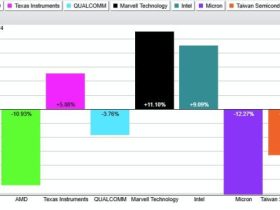While the concept of a permanently high plateau in relation to stocks may sound intriguing and perhaps optimistic at first glance, it is essential to unpack the complexities and realities that underlie such a notion. The idea of a continuously rising stock market, immune to downturns and market corrections, is often more of a theoretical concept rather than a practical reality.
One key consideration when evaluating the concept of a permanently high plateau in the stock market is the inherent cyclical nature of financial markets. History has shown us time and again that markets go through periods of booms and busts, with fluctuations driven by various factors such as economic indicators, geopolitical events, and market sentiment. While certain sectors or stocks may experience prolonged periods of growth, it is unlikely that this growth will be sustained indefinitely without any setbacks.
Furthermore, the idea of a permanently high plateau can lull investors into a false sense of security, leading to complacency and excessive risk-taking. Believing that stock prices will only move in one direction can result in investors overlooking potential warning signs and failing to adequately diversify their portfolios. It is crucial for investors to maintain a cautious and realistic outlook, acknowledging the inherent volatility and unpredictability of the stock market.
Another factor to consider when discussing a permanently high plateau is the impact of external shocks and unforeseen events on stock prices. While market trends and economic indicators can provide valuable insights, they cannot account for unexpected events such as natural disasters, political crises, or global pandemics. These events can have a significant and sudden impact on stock prices, challenging the notion of a continuously rising market.
Additionally, it is important to recognize the role of market participants in shaping stock prices. Investor behavior, market psychology, and speculative activity all play a significant role in determining stock valuations. The widespread belief in a permanently high plateau can contribute to market exuberance and the formation of asset bubbles, which can eventually burst and lead to sharp market corrections.
In conclusion, while the concept of a permanently high plateau in the stock market may hold appeal for some, it is crucial to approach such notions with a critical and realistic perspective. Financial markets are dynamic and influenced by a multitude of factors, making sustained growth without setbacks an improbable scenario. Investors should remain vigilant, informed, and prepared to navigate the inherent uncertainties of the stock market, rather than relying on the hope of a perpetually rising market.











